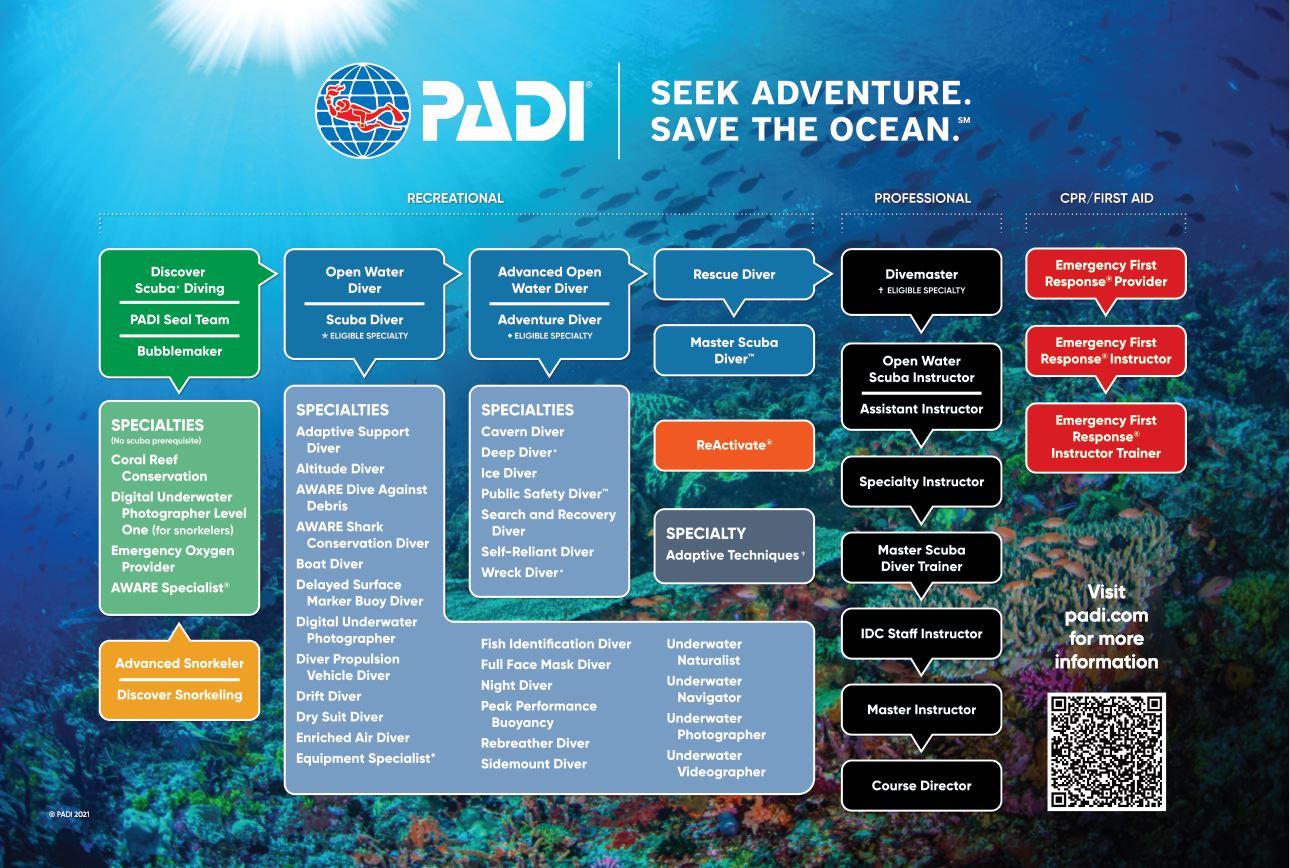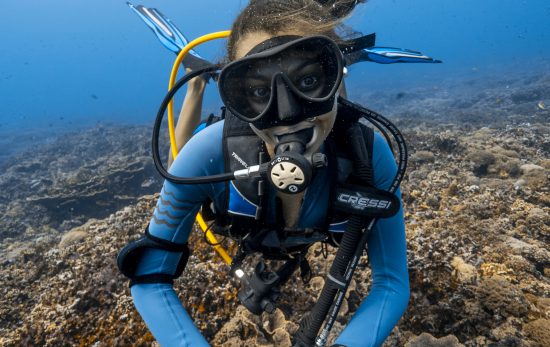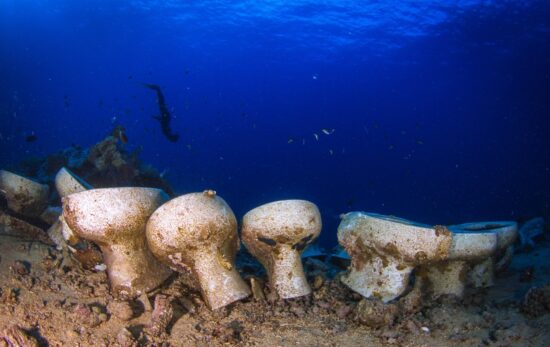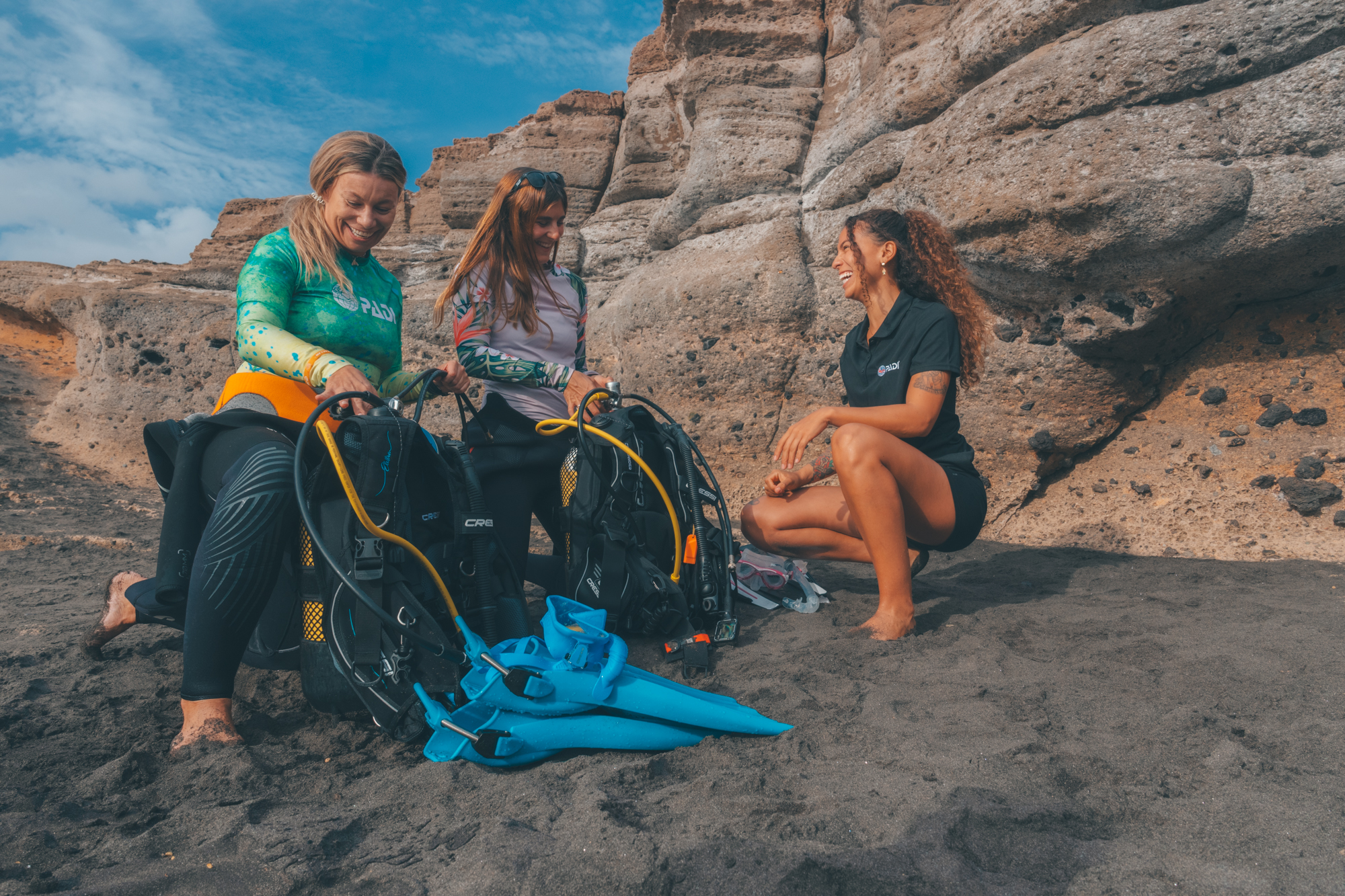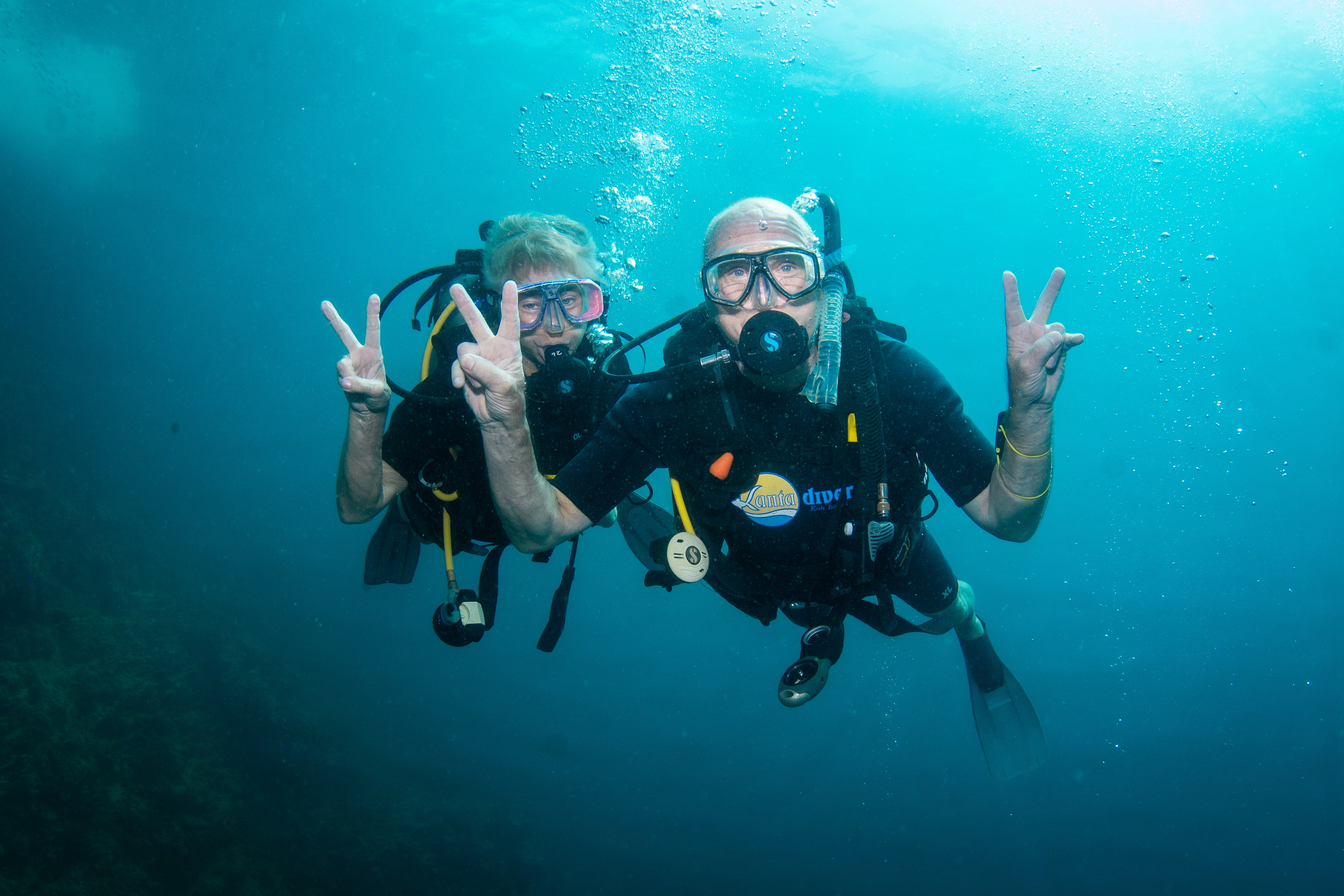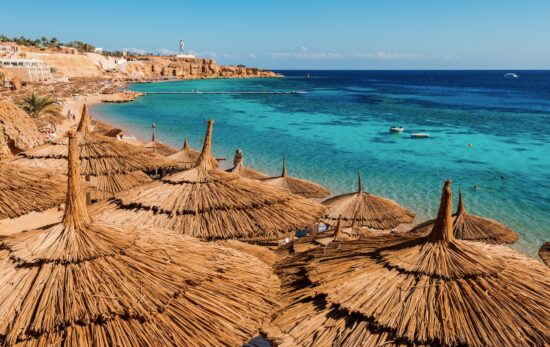Completing PADI courses at the various PADI certification levels and gaining PADI certification cards unlocks adventure in all corners of the globe. In addition, as a certified diver, you join a global community of Ocean Torchbearers that includes the Cousteau Family, Dr. Sylvia Earle, and millions of other divers around the world.
That being said, your underwater journey is entirely your own. After earning your first diving certification (such as the PADI Open Water Diver certification), you’ll want to explore everything the ocean offers, but you may feel overwhelmed by all the options. That’s why we put together this comprehensive guide to PADI courses and certification levels. Explore the list below to find inspiration while planning your next scuba or freediving adventure. Your first step to learning to dive starts here.
As an experienced diver once said, “There’s a type of diving for everyone, you just have to find it.” View All PADI Courses.
PADI Certifications
- Your First Scuba Diving Certification
- After Open Water Diver – What’s Next
- Advanced Open Water Diver
- Take a Scuba Refresher Program
- PADI Specialty Diver Courses
- Rescue Diver
- Master Scuba Diver
- Divemaster
- Become a Scuba Instructor and Teach PADI Courses
- Become a Specialty Instructor
- PADI Courses for Technical and Rebreather Diving
- Course Director
- PADI Freediving Courses
- PADI Mermaid Courses
- Start Your PADI Courses Online
- Frequently Asked Questions
Your First Scuba Diving Certification
Change Your Life. Become a Diver.
If you’re not a certified diver yet, we have plenty of information to help you learn everything you need to know about the PADI Open Water Diver course, the first PADI scuba diving certification. We’ve also put together a list of the most common questions new divers ask their scuba instructors, and we’ve debunked the top myths about scuba diving.
You may be wondering, “Is learning to scuba dive hard?” Or, maybe, you’re afraid of sharks.
Don’t worry. It’s natural to be nervous. Do talk to your scuba instructor about your concerns, because they’ll be happy to answer any questions you have about your PADI Open Water Diver course and support you every step of the way.
Not sure if scuba diving is for you? Try it in a pool first. Ask your local PADI Dive Shop about a Discover Scuba® Diving experience. Alternatively, sign up for Introduction to Open Water Diver, a free PADI eLearning® program that will give you a taster of what to expect during the full Open Water Diver course.
Here are a few other things to consider before booking your scuba lessons:
- Learning to Dive: Local vs. Tropical
- Can I Scuba Dive If I Wear Contacts or Glasses? TL;DR = Yes, you can.
- The Best of Both Worlds: Open Water Diver Course Referral
- Tips and Tricks for a Smoother PADI Open Water Diver Course
Whatever you do, don’t delay. The sooner you jump into your first PADI scuba diving certification, the sooner you’ll unlock a lifetime of Unfiltered experiences – from incredible marine encounters to new connections with friends.
PADI Junior Open Water Diver
Young adventurers aged 10 to 14 can participate in the PADI Junior Open Water Diver course and receive a Junior certification. The course entails the same skills and knowledge development as the original Open Water Diver course but is better directed to a younger audience. Participants will complete the theory portion of the course (either in person or with eLearning) and then in-water training. Once complete, Junior Open Water Divers aged 10-12 will be certified to dive to 12 meters (40 feet) with a parent, guardian or PADI Professional. Junior Open Water Divers aged 12-14 will be certified to dive to 18 meters (60 feet) with an adult certified diver.
After PADI Open Water Diver – What’s Next?
Check out the PADI Certification Levels Chart below for a visual representation of the PADI recreational course flow.
Are you ready for your next PADI scuba certification? If you’re like most people, you want to avoid looking like a new diver.
The fastest way to improve your skills is to take additional scuba courses. About one in four divers enroll in the PADI Advanced Open Water Diver course next, while others take PADI Specialty Diver courses to improve their buoyancy, underwater navigation, or underwater photos. The PADI course chart above shows the different scuba certification levels, as well as the many specialty subjects available. Please note that some specialties require an Advanced Open Water Diver certification as a prerequisite.
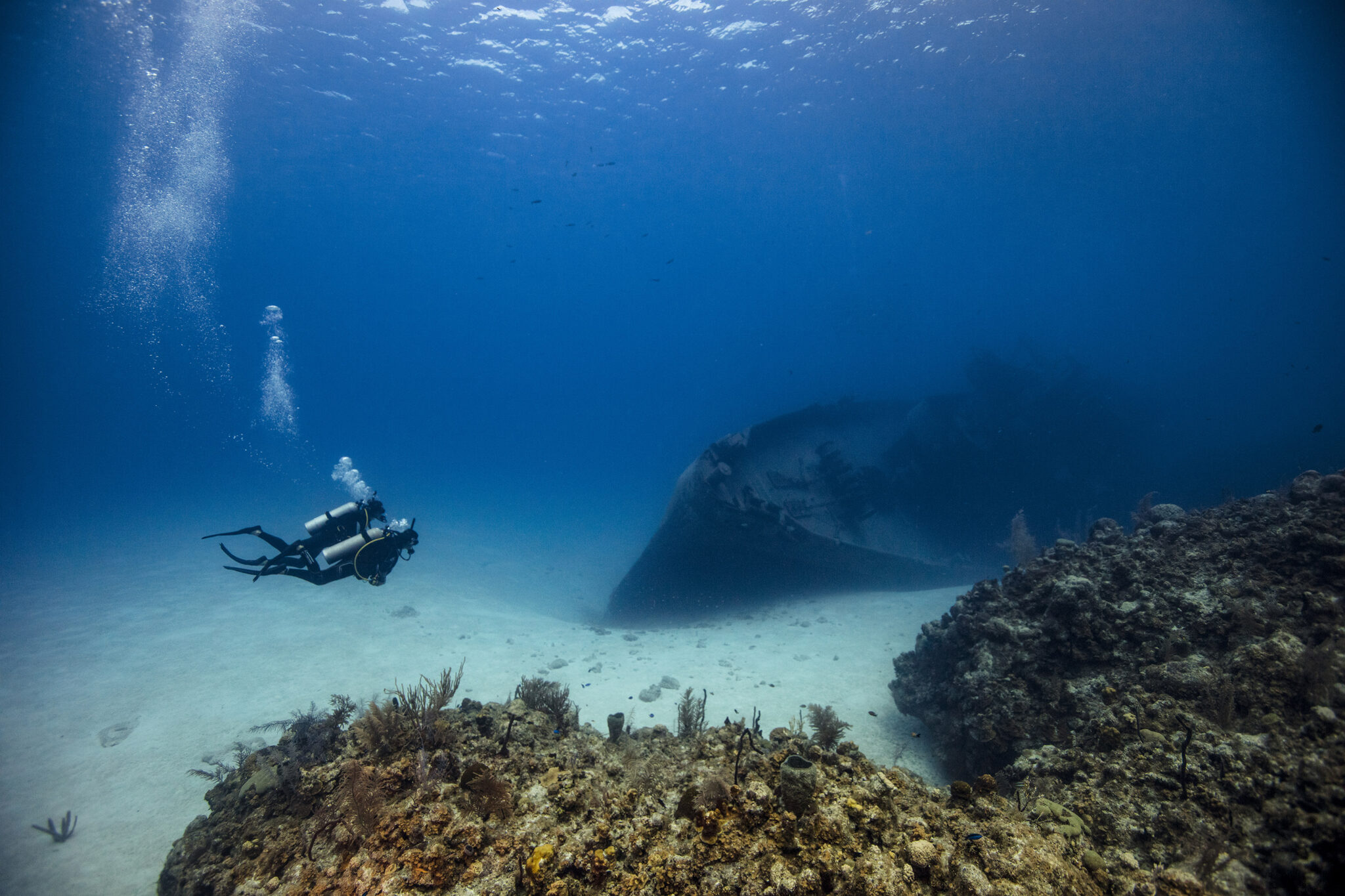
PADI Advanced Open Water Diver
A Specialty Diving Sampler Platter
After the PADI Open Water Diver course, if you’re not sure which PADI diving course to take next, the PADI Advanced Open Water Diver course is a good choice. You’ll make your first deep dive with a PADI Instructor by your side, work on your buoyancy and navigation skills, and try three different types of specialty diving. Choose whatever interests you: photography and videography, wreck diving, fish identification, and so much more. Lastly, there’s no exam and very little reading compared to the Open Water Diver course. Learn more about the difference between Open Water Diver and Advanced Open Water Diver here.
Here is some more information to help you decide if this advanced scuba certification is right for you:
- Frequently Asked Questions About the Advanced Open Water Diver Course
- Useful Skills You Learn in the Advanced Open Water Diver Course
- Reasons To Do Your Advanced Open Water Diver Course
PADI Junior Advanced Open Water Diver
The PADI Junior Advanced Open Water Diver course allows young ocean lovers to further their underwater skills. Children aged 12 to 14 can undertake the course, gaining further knowledge and completing five specialty dives. These include navigation, deep diving (up to 21 meters/70 feet) and other specialty dives, like night diving, wreck diving, or peak performance buoyancy, under the guidance of an instructor. Once complete, young divers can thrive and dive with confidence thanks to the specialized dive experiences they’ve had.
Take a Scuba Refresher Program
Don’t Let Your Scuba Skills Lapse
Life happens, and sometimes we can’t do the thing we love as often as we’d like. If it’s been a while since you went scuba diving, PADI’s interactive online scuba refresher program, called PADI ReActivate®, is the perfect way to refresh the skills and knowledge learned during your Open Water Diver course. Plus, it’s free with a PADI Club membership.
Whether you want a thorough review of scuba diving fundamentals or just a few reminders, the online course tailors itself to you. You’ll review different diving scenarios and answer questions about dive planning, equipment, and other essential topics. Answer correctly, and you’ll move on to the next scenario. If you miss a question, the course will help you review important information you may have forgotten since getting your PADI scuba certification.
Then, schedule time with a PADI Professional to review your in-water skills. If you complete both the online and in-water portions of PADI ReActivate, you’ll get a new certification card with your ReActivated date on it.
Are you ready for your next PADI scuba diving course or diving holiday? Review the signs you need a refresher, or test your knowledge by enrolling in ReActivate online.
PADI Specialty Diver Courses
Choose Your Adventure
Once you have your first PADI dive certification in hand, PADI Specialty Diver courses allow you to try different types of diving with an experienced scuba instructor by your side. Learn how to take great action-cam shots, discover if dry suit diving is right for you, or dive a shipwreck. Improve your search and recovery skills, or take a PADI Enriched Air (Nitrox) Diver course.
If you’re not sure which specialty to start with, take our specialty course quiz. Or, narrow down your options by picking from our list of the most popular PADI Specialty Diver courses.
In the articles below, PADI divers share their experience trying different types of specialty diving:
- PADI Courses the Whole Family Can Enjoy
- Top 5 Wreck-Diving Tips
- Specialty Courses for Budding Conservationists
- Should Night Diving Be on Your Bucket List?
- Take the Plunge With the PADI Deep Diver Specialty
- PADI Specialties for the Winter Months
- 4 Things I Wish Someone Told Me About Buoyancy
- The Benefits of Diving Nitrox vs. Air
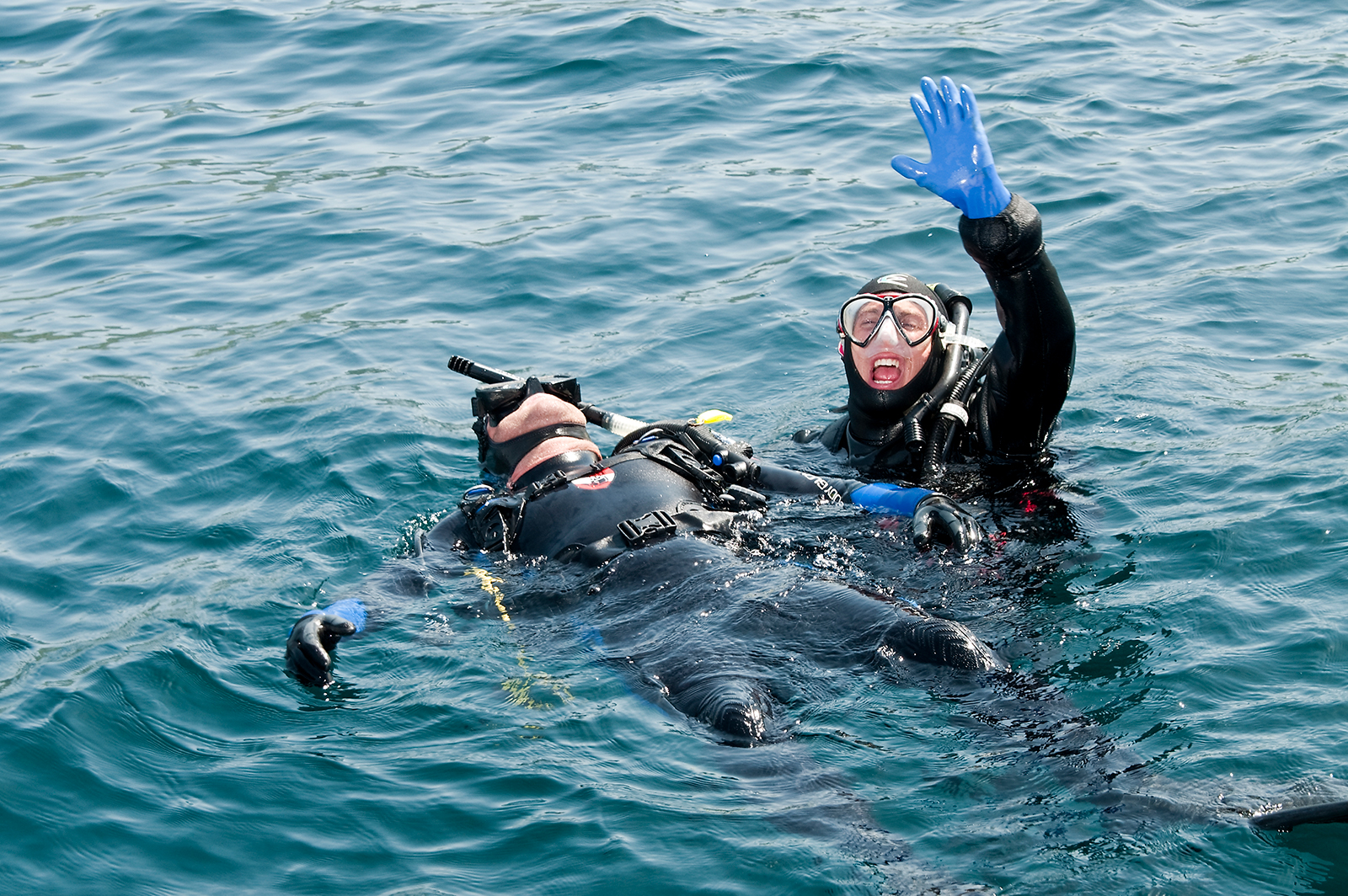
PADI Rescue Diver
Improve Your Confidence and Become a Better Buddy
Who would you rather have as a dive buddy? An Open Water Diver or a Rescue Diver? All other things being equal, most people would rather have a Rescue Diver as their dive buddy.
During the PADI Rescue Diver course, you’ll learn how to recognize potential problems and what to do in a diving emergency. You’ll have a surprising amount of fun role-playing as a victim and rescuer with other divers, and as a result, you’ll gain a lot of confidence in your diving skills.
Many divers tell us Rescue Diver was undoubtedly their favorite course out of all the PADI courses. It’s challenging, rewarding, and also makes you a better dive buddy. With this in mind, read these important reasons to earn a Rescue Diver certification and one diver’s experience taking the PADI Rescue Diver course.
PADI Junior Rescue Diver
The PADI Junior Rescue Diver course empowers young divers aged 12 to 14 with essential rescue skills and safety awareness. Just like the adult course, through engaging scenarios and hands-on practice, junior divers learn to recognize and respond to dive-related issues, assist others, and manage their stress in challenging situations. This transformative course not only builds confidence and responsibility but also prepares young divers to be safer, more capable dive buddies.
Read more about one teen’s journey to the Junior Rescue Diver certification here.
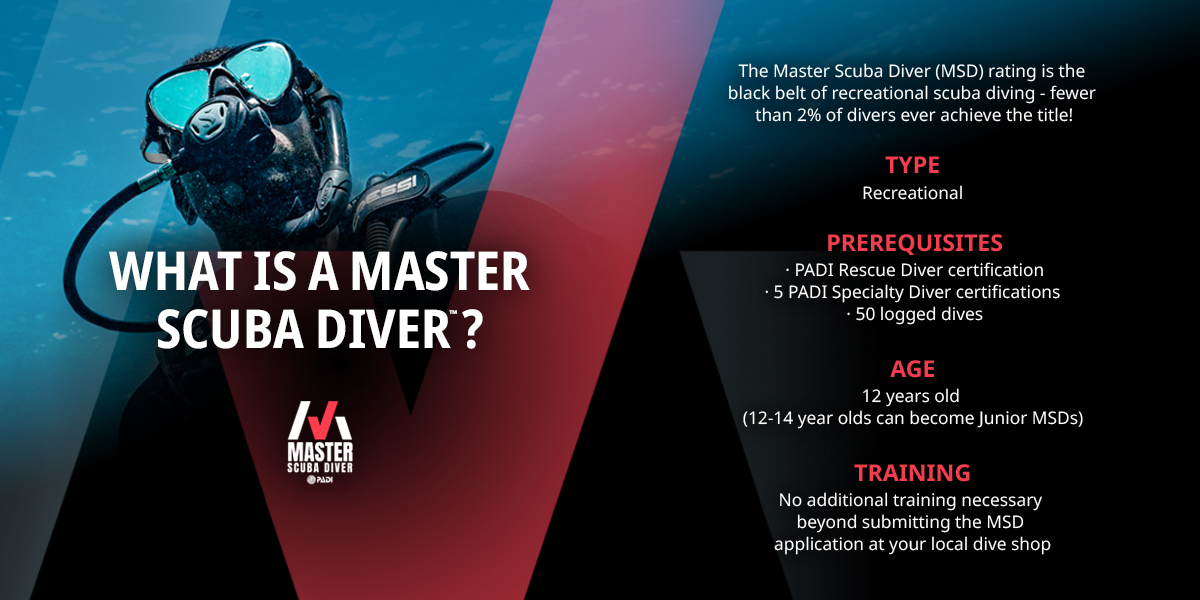
Master Scuba Diver
The “Black Belt” of Scuba Diving
You may have heard the term “master diver” or “master scuba diver” and wondered what it means. Master Scuba Diver™ (sometimes referred to as “MSD”) is PADI’s highest level of recreational diving.
Above all, to become a PADI Master Scuba Diver, you must:
- Hold Open Water Diver, Advanced Open Water Diver, and Rescue Diver certifications
- Complete five PADI Specialty Diver courses
- Log a minimum of 50 dives
- Be at least 12 years old
Fewer than two percent of divers ever become Master Scuba Divers, so it’s rare to meet someone with this level of experience and scuba training. For this reason, Master Scuba Diver is sometimes referred to as “the black belt of diving.”
Learn more about becoming a Master Scuba Diver:
- What’s the Difference Between PADI Master Scuba Diver and Divemaster?
- How to Create a Custom Master Scuba Diver Program
- Earn Your Master Scuba Diver Rating as You Explore the World
PADI Divemaster
Get Paid To Dive, Travel, and Share Your Love of Scuba Diving
During your diving journey, you may discover a passion for sharing your experiences and knowledge with others. If you like helping people and want a meaningful job that also supports ocean conservation, the PADI Divemaster course is the first step into a professional scuba career.
To enroll in the Divemaster course, you must be 18 years old and have 40 logged dives as well as the following certifications:
- Open Water Diver, Advanced Open Water Diver, and Rescue Diver
- Emergency First Response (or qualifying equivalent CPR and First Aid training) within 24 months
- Log a minimum of 40 dives
You can become a PADI Divemaster over many months or during a few intense weeks. You can even sign up for a free Introduction to Divemaster eLearning course. Meanwhile, learn more about Divemaster internships and how to prepare for your Divemaster course. Or, read about the role of a Divemaster and get answers to frequently asked questions about the PADI Divemaster course.
PADI Junior Divemaster
The PADI Junior Divemaster course allows divers aged 15 to 17 to build leadership skills, assist instructors, and supervise dive activities under professional guidance. The course is structured similarly to the adult course but doesn’t include all the same material. At age 18, certified Junior Divemasters may become PADI Divemaster candidates and finish their training. Junior Divemasters must complete the remainder of the Divemaster course at this time.
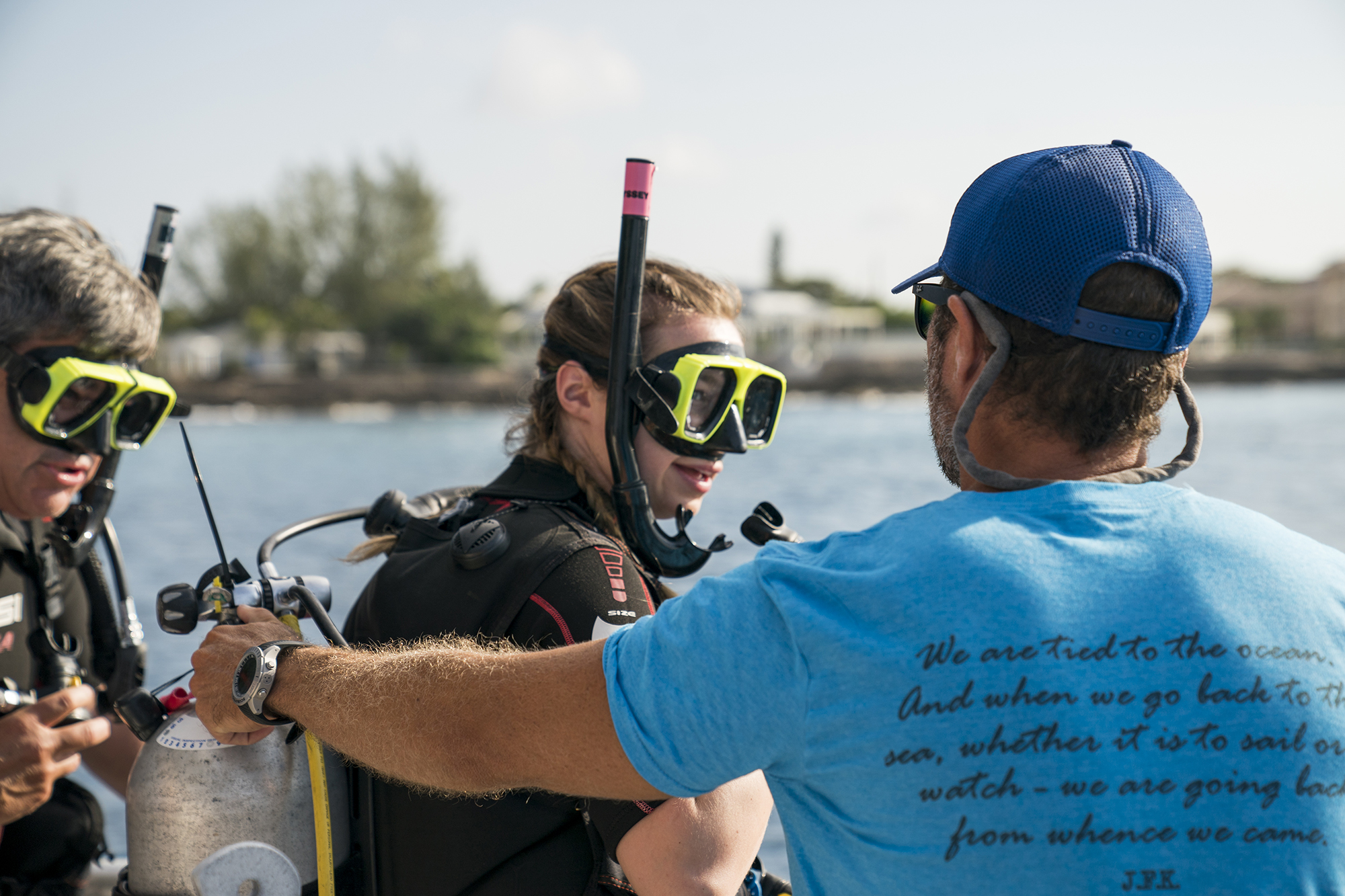
Become a Scuba Instructor and Teach PADI Courses
Inspire Others to Seek Adventure and Save the Ocean
Scuba instructors are sometimes portrayed as vagabonds or beach bums, but in reality, they are passionate ocean defenders. Every day, scuba instructors around the world certify new underwater ambassadors who will be a voice for the ocean.
Dive instructors also transform lives. They help students overcome their fears, take them on exciting adventures, and show them why we need to take better care of our ocean planet.
How To Become a PADI Instructor
The first step to becoming a scuba instructor is enrolling in the PADI Instructor Development Course (IDC). Here are a few things to consider before taking the IDC and some commonly held myths about becoming an instructor.
Firstly, there are a few mandatory requirements to enroll in the IDC:
- You must be a PADI Divemaster
- You must have been a certified diver for more than six months
- You must have a minimum of 60 logged dives, or 100 by the time you progress onto the Instructor Examination
- You must have a medical statement from a physician within the last 12 months
- You must have completed Emergency First Response Primary and Secondary Care (or equivalent CPR and First Aid) training within the last 24 months
Then, becoming a fully certified PADI Instructor consists of three parts:
- The PADI Assistant Instructor course (AI)
- The PADI Open Water Scuba Instructor course (OWSI)
- The Instructor Examination (IE)
You may be surprised to know that many people who complete the IDC don’t necessarily work as scuba instructors afterward. For instance, some divers take the course simply for the personal challenge and to learn skills that benefit them in office life. Others work as research divers, on public safety teams, or in the entertainment industry. Learn more about career opportunities for scuba divers, and read interviews with people who have full-time scuba diving jobs.
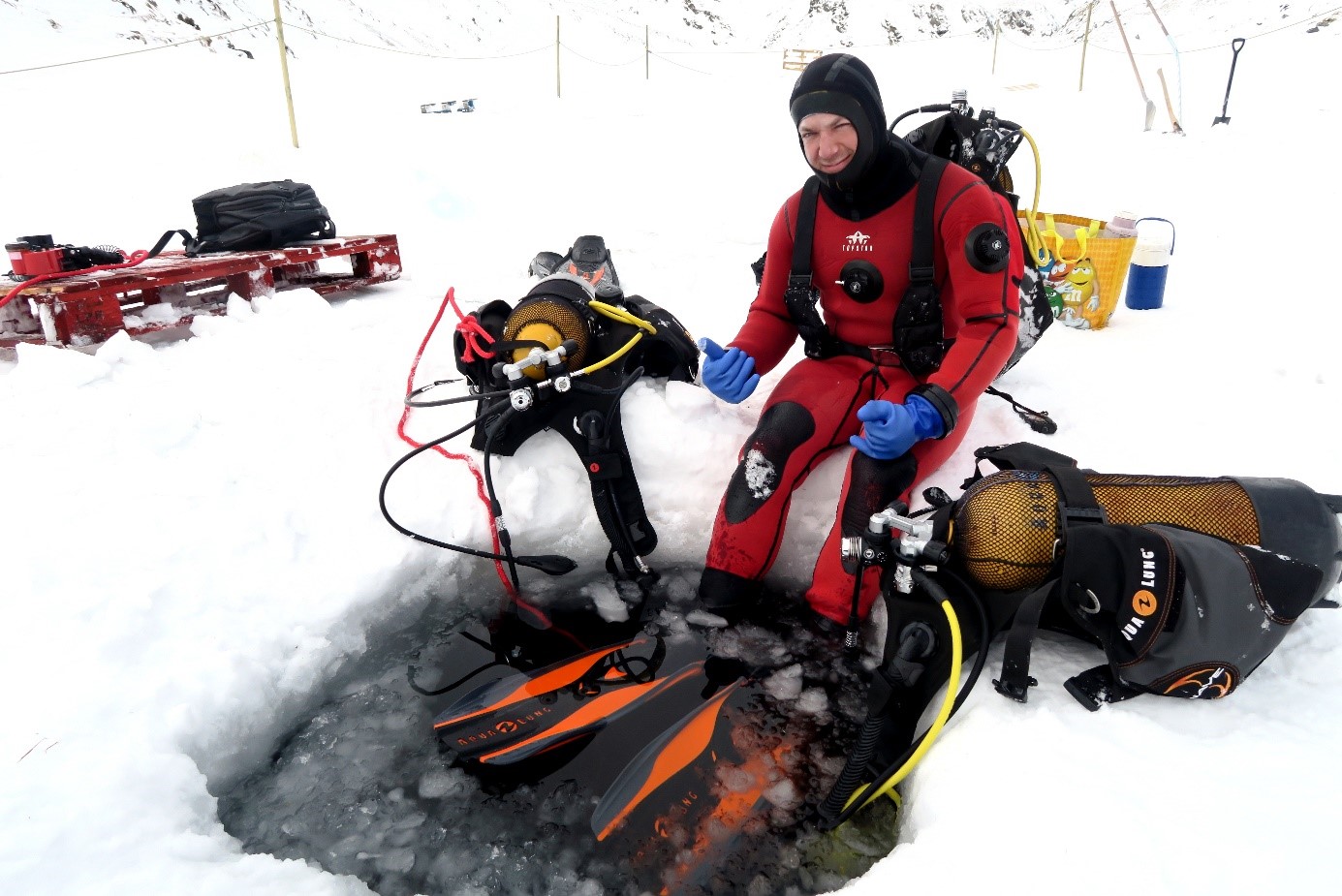
Become a Specialty Instructor
Elevate Your Teaching Capabilities
With over 25 specialties to offer, PADI Specialty Diver courses allow you to elevate your teaching career even further after becoming a PADI Instructor. Specialty Instructors become experts in different diving fields, inspiring students to undertake unique courses, too.
Specialty courses are not only exciting for students but also thrilling for PADI Instructors to become qualified to teach. In doing so, you become not only an inspiring role model for students but a sought-after dive professional for dive resorts and jobs in the marine industry.
Some PADI Specialty Diver courses you could become certified to teach include:
- PADI Boat Diver
- PADI Equipment Specialist
- PADI Digital Underwater Photographer
- PADI Peak Performance Buoyancy
- PADI Full Face Mask Diver
- PADI Sidemount Diver
- PADI Dive Against Debris
If these courses sound inviting, then check out the full range of specialties here.
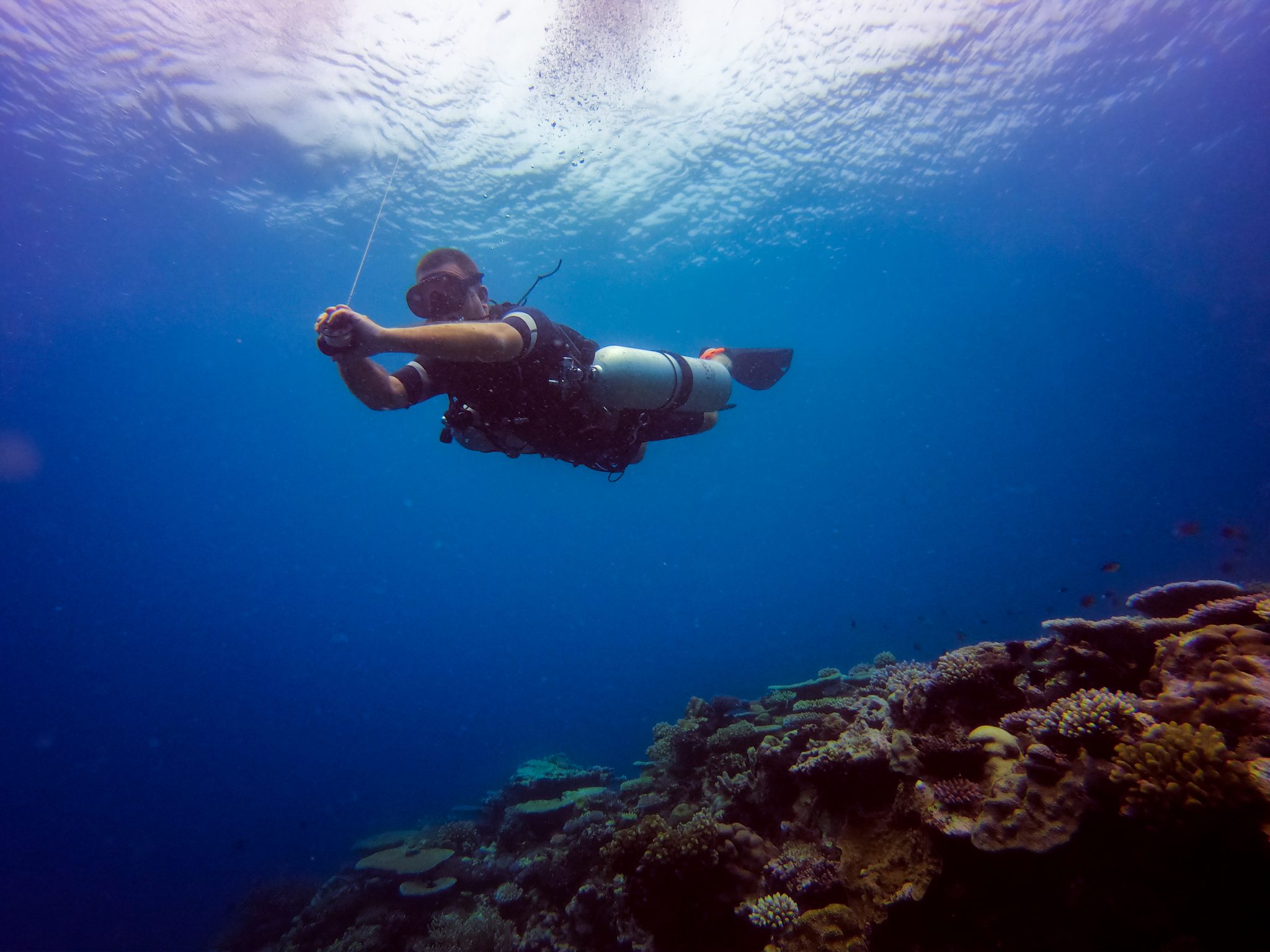
PADI Courses for Technical and Rebreather Diving
Go Deeper. Stay Longer.
PADI Tec Diver courses attract experienced divers who want to go beyond the limits of recreational diving. Technical (or Tec) divers get to explore underwater caves, visit spectacular, untouched wrecks, and use cutting-edge dive equipment. Moreover, divers who learn to dive with a rebreather enjoy unparalleled animal encounters and dramatically longer dive times.
If you’re curious about technical or rebreather diving, then sign up for a Discover Tec or Discover Rebreather course. A PADI Tec Instructor will help you try tec diving equipment in a pool and show you a few basic skills. Then, if you want to keep going, you can complete your transition from recreational to technical diving with the PADI Tec 40 Diver course.
Or, if you’re not ready to go “full tec” straight away, consider trying sidemount diving instead. It’s a technical diving configuration that has recently become popular with recreational divers. Learn more about the benefits of diving sidemount.
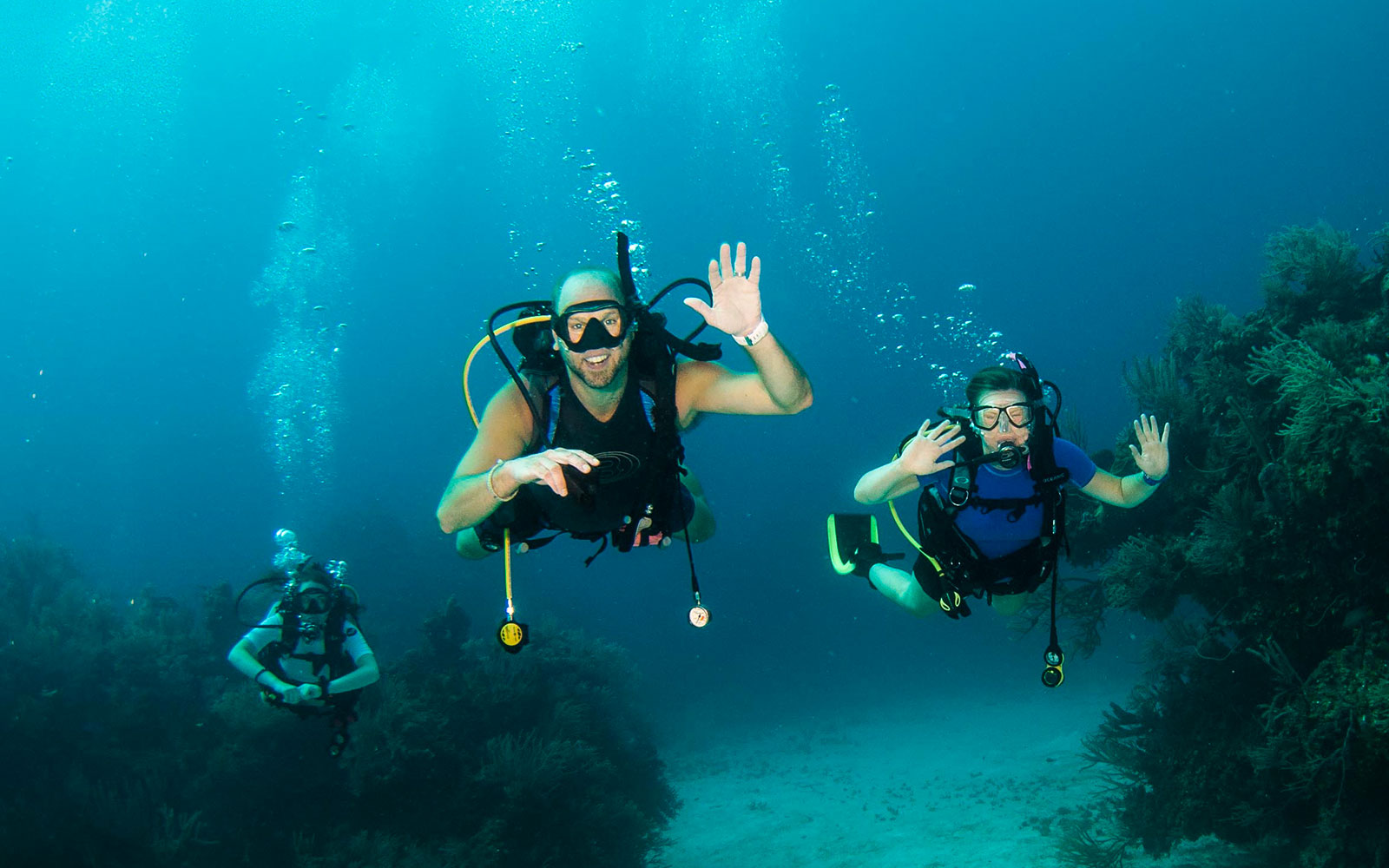
Course Director
Join the Elite. Achieve the Highest Title.
Hovering at the top of the list of PADI courses is Course Director status. While this title is one that almost every PADI Pro aspires to, Course Directors must first earn their place on the PADI Course Director Training Course (CDTC) to achieve this elite status. In due course, Course Directors are certified to teach the Instructor Development Course (IDC).
Without a doubt, the CDTC requires a high level of skill, so the requirements to enroll in this course are fairly intense. For example, candidates must be a PADI Instructor for two years, have certified over 150 students and completed over 250 logged dives. They must also have experience in assisting with IDCs and working at PADI Dive Centers and/or Resorts. The full requirements for the CDTC can be downloaded from the PADI Pros’ site.
Not only is being a Course Director an extremely desirable title in the dive industry, but this rating also comes with a huge sense of personal success. Becoming a Course Director is intense; however, it’s exciting, and it’s certainly respected.
Interested in real-life Course Director career stories? Read about female Course Directors making strides, plus:
- Zoona Naseem, the First Female Course Director in the Maldives
- Jamie Hull, Plane Crash Survivor and PADI Course Director
- Szilvia Gogh, Stuntwoman and PADI Course Director
PADI Freediver Courses
Embrace Your Inner Power, Discipline, and Control
Freediving has become a popular way to explore the underwater world away from the burden of scuba gear and decompression limits. While freediving, you’ll enjoy an unrivaled sense of peace and freedom for as long as you can hold your breath. And that’s not to mention the other benefits of freediving, like closer (bubble-free) marine life encounters, improved fitness, and reduced stress.
Moreover, you don’t need any prior PADI diving certifications or snorkeling experience to enroll in a Beginner Freediver™ course – just reasonable swimming skills and good physical health. If you’re over 12 years old, you can get certified and practice freediving disciplines, such as dynamic, static, and constant weight freediving, through a PADI Freediver course.
Once you’ve completed your first PADI Freediver course, you can then progress your skills and limits by moving on to PADI Advanced Freediver (ages 15+) and PADI Master Freediver (ages 18+).
Intrigued and want to learn more before plunging into the world of freediving? Here are some other useful blogs:
- “What is Freediving?” and Other Frequently Asked Questions
- Freediving vs. Scuba Diving: 5 BIG Differences
- 4 Ways Freediving Will Change Your Life
- How To Prepare for a Freediving Course
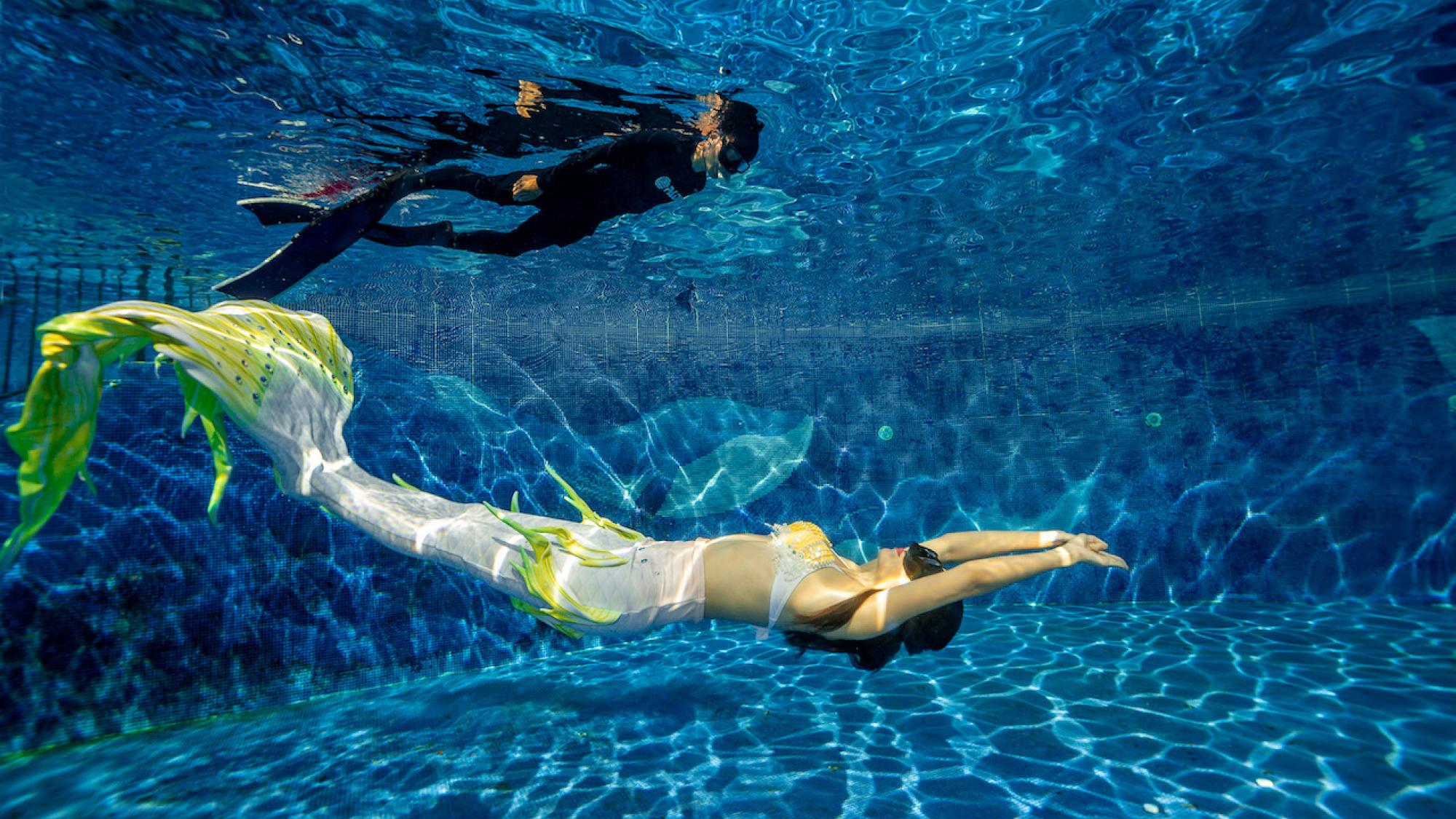
PADI Mermaid Courses
A Unique Underwater Experience That Mixes Reality With Fantasy
Mermaid diving (or “mermaiding”) is a fun and rewarding passion that blends the essence of folklore with some basic techniques and equipment used in swimming, scuba, and freediving. A growing community of PADI Mermaids is also using their mer-skills to advocate for ocean conservation or even become professional entertainers, including Dada Li, Mara Restelli and Brandee Anthony. Or, check out five more amazing mermaids that just might inspire you to take a PADI Mermaid course.
While mermaiding looks effortless (that’s part of the skill, after all), staying safe and elegant underwater calls for knowledge development and practical training.
PADI Mermaid™ programs will help you do just that, and there are presently four recreational Mermaid diving certification levels.
- PADI Discover Mermaid™: A simple confined-water trial to give you a glimpse into a mermaid’s world.
- PADI Basic Mermaid™: Introduces mermaiding fundamentals, from culture and gear to basic water skills.
- PADI Mermaid: Learn expressive water skills that set mermaiding apart from other types of diving.
- PADI Advanced Mermaid™: Progress your mermaiding skills while exploring the natural, open-water environment.
By the way, contrary to popular belief, PADI Mermaid is certainly not limited to women. There are a substantial number of male participants, and “mermaiding” is nowadays considered a gender-neutral term for this activity.
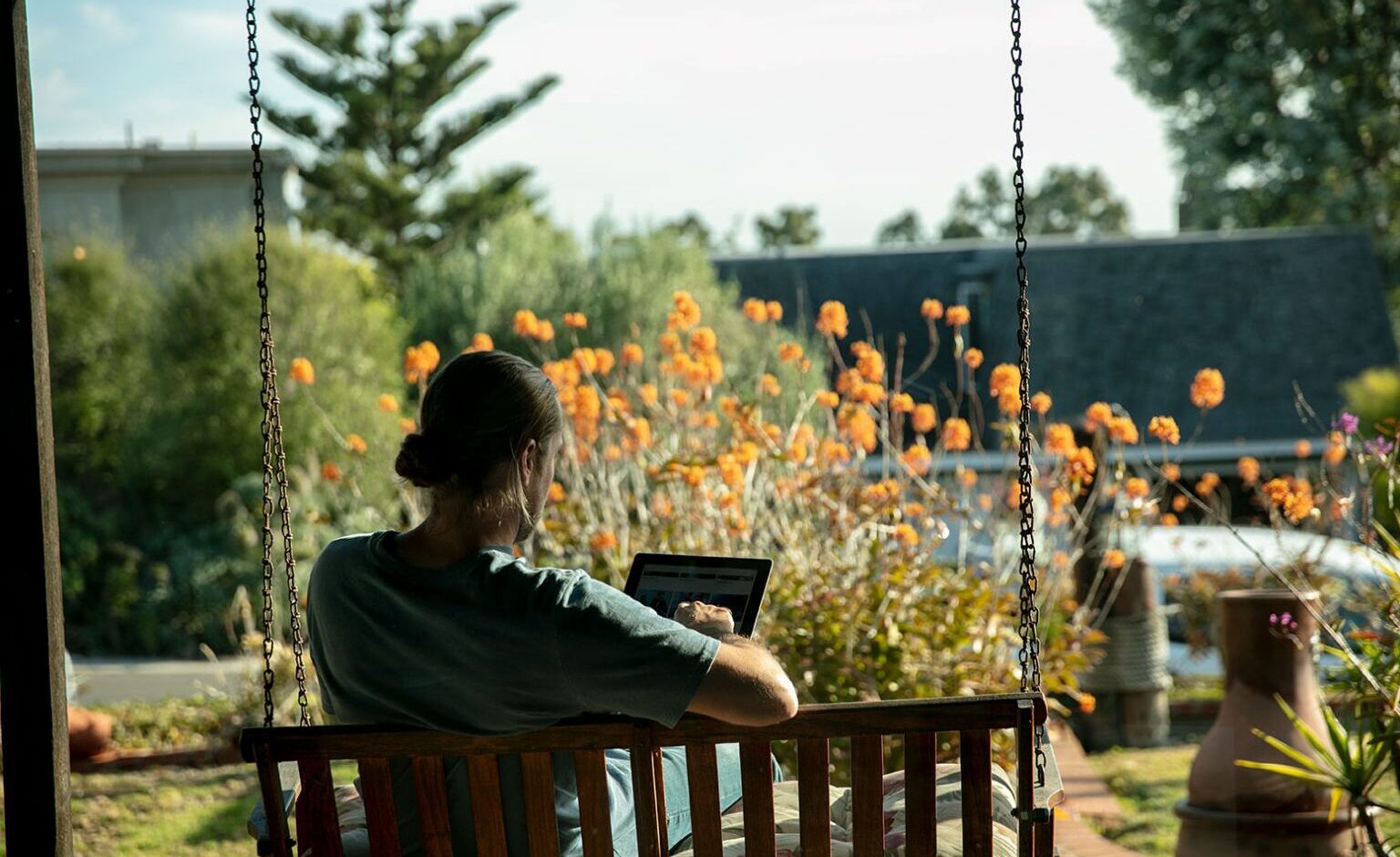
Start Your PADI Courses Online
With PADI eLearning, you can complete the knowledge development portion of most PADI courses online from your computer or mobile device. This gives you total freedom to choose when and where you study, and to move through the interactive topics at your own pace.
It’s also a great way to maximize your vacation time. You can complete the theory portion of your PADI certification online with eLearning before you even step on the plane and then enjoy more precious time underwater once you reach your scuba destination.
Still not sure if eLearning is for you? Here is some more guidance:
- Digital or Classroom – the Best Option for Your Dive Theory
- Is eLearning Suitable for a New Diver?
- Why Start Your Scuba Journey Online With eLearning
- 3 Ways PADI eLearning Can Help You Level Up as a Diver
FAQs About PADI Courses
You’ve got questions. We’ve got answers. Keep reading for more information on PADI courses.
Where Can I Take PADI Courses?
PADI courses are available worldwide at PADI Dive Centers and Resorts. You can find a nearby location using the PADI Dive Shop Locator here.
Should I Use PADI eLearning or In-Person Learning?
Choosing between PADI eLearning and in-person learning depends on your preferences and schedule. eLearning offers flexibility and convenience, allowing you to study at your own pace anywhere – even offline! Onsite learning provides direct instructor interaction and a structured environment, which can be beneficial if you prefer guided learning. Both offer a combination approach to learning, completing learning modules followed by practical sessions.
Ultimately, both options lead to becoming a certified PADI diver, ready to explore the underwater world!
How Much Do PADI Courses Cost?
Course costs vary depending on the location, the specific course, and the dive center. Contact your local PADI Dive Center for detailed pricing, or find eLearning pricing here.
What If I Have a Medical Condition?
You should consult a physician before starting a diving course. Some medical conditions may require approval from a doctor to ensure your safety. You can find the PADI Diver Medical form here.
Can I Book Course and Accommodation Packages?
In short, yes! PADI Travel offers a variety of dive trip options for online bookings, such as courses, dive resorts, liveaboards, and dive day trips to suit different preferences and vacation budgets. Conveniently search the globe for and book exciting dive packages that include accommodation, meals, and multiple dives at famous diving destinations worldwide here!
More Questions?
If you have any other questions about the scuba certifications above, or about how to get PADI certified, contact a PADI Dive Center or Resort. Also, if you’re a college or university student, ask your school about earning college credit for your scuba lessons.
If you’re ready to start your first (or next) PADI certification, sign up today with PADI eLearning!

